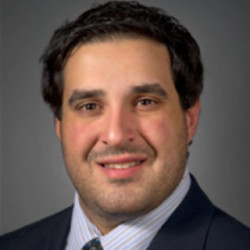The American College Emergency Medicine (ACEP) Council met fully in person in San Francisco on the two days preceding the opening of ACEP22. This body consists of Emergency Physicians and residents from 53 chartered chapters, sections of membership and related Emergency Medicine bodies. The purpose of the annual event is to discuss and deliberate changes to college-guiding documents and resolutions that can be submitted by ACEP members to guide ACEP activity and policy development. In addition, the body votes on the council leadership, ACEP Board of Directors, and ACEP President-elect positions.
Annually, an array of in-memoriam resolutions are adopted honoring Emergency Physicians and those who have supported ACEP functions. It is always a somber moment, remembering and reflecting on our colleagues and the dedication they gave to the field of emergency medicine and their patients. In the shadow of the majestic California redwoods, it is a moment to recognize that while our times may be short, the lasting effects we have on those we work with, train, and heal can outlive our time.
There was a wide array of issues covered in the proposed resolutions on the council floor. Ranging from bylaws and council rule modifications, to items of member support, corporate medicine, substance use disorder, scope of practice, reproductive health access and workplace violence.
Scope of practice resolutions generated significant testimony and deliberation. Overall, with patient safety as the focus, the importance of the physician-led medical team was well supported, recognizing the role advanced practice providers (APPs) play in patient care from urban through rural emergency departments. Additionally, there was support for upholding the current ACEP-approved certifying bodies of Emergency Physicians.
Timely societal issues that relate to patient care and emergency medicine annually generate resolutions for discussion. The focus on social determinants of health, the substance use disorder epidemic and reproductive healthcare all generated significant discussion. Access to emergency reproductive healthcare was affirmed as well as improving access for patients to medication-assisted therapy for opiate use disorder.
The overarching themes of the approved resolutions focused on access to emergent healthcare, improving patient safety, keeping medical care between patients and physicians, and improving the practice of emergency medicine.
Finally, the council elected four ACEP Board of Directors members, and as there was a single candidate, a president by acclamation. The board candidates who were incumbent and re-elected include Dr. Jeffry Goodloe, a professor of emergency medicine practicing in Oklahoma, Dr. Gabe Kelen, chair of Emergency Medicine at Johns Hopkins University in Baltimore, and Dr. Ryan Stanton, an emergency physician from Kentucky, known to many from the ACEP Frontline podcast. Finally, Dr. Kristin McCabe-Kline was added to the board. Dr. McCabe Kline is VP and chief medical information officer at Advent Health in Florida. All bring a wealth of emergency medicine knowledge to the table.
The council elected Dr. Aisha Terry who ran unopposed to the president-elect position.
Dr. Terry is an associate professor of emergency medicine and health policy at George Washington University School of Medicine and Milken Institute School of Public Health. She will lead into the president role at ACEP23 in Philadelphia after the current ACEP President Dr. Kang completes his term. She continues to serve ACEP with a vast wealth of experience in emergency medicine.
Dr. Bramante has no conflicts of interest to report.
Image Boris Zhitkov / Getty







